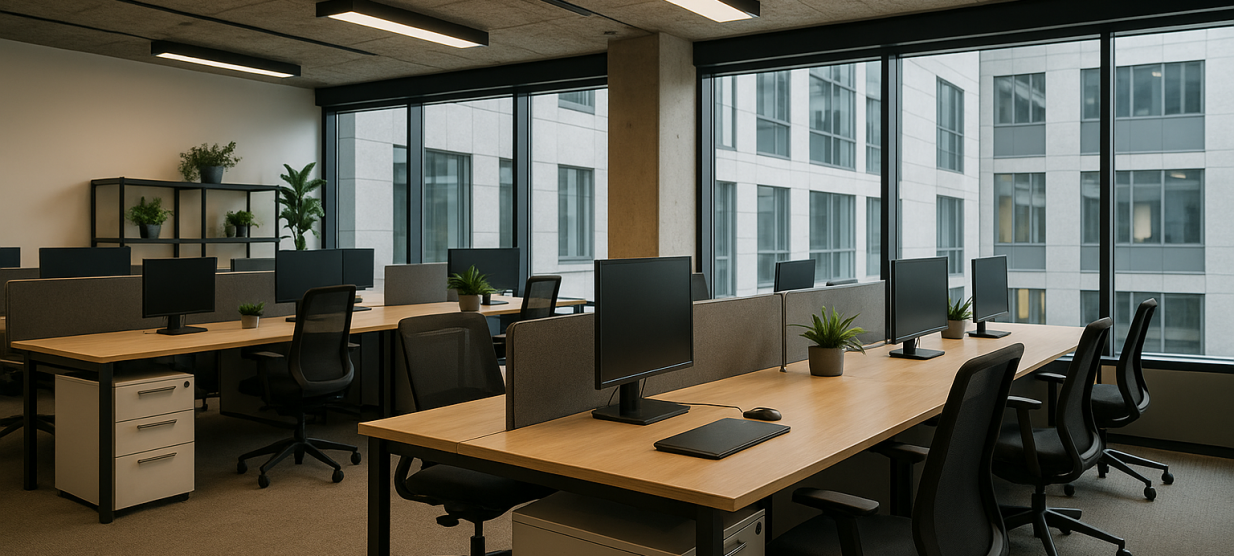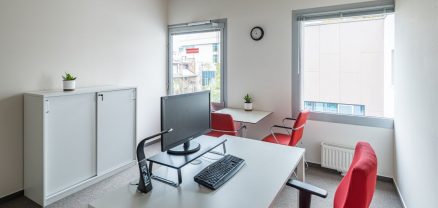Serviced Offices and Building Workplace Communities: Redefining the Future of Work
In the bustling landscape of modern office real estate, the traditional 9-to-5 cubicle farm is giving way to something far more dynamic. Enter serviced offices – flexible, fully equipped workspaces that are transforming how businesses operate – and with them, the rise of building workplace communities that breathe life into these spaces. This isn’t just about desks and Wi-Fi; it’s about cultivating environments where innovation, collaboration, and culture thrive. For small businesses and forward-thinking companies alike, understanding the power of serviced offices and their role in building vibrant workplace communities is essential to staying ahead in a competitive market.
The Rise of the Serviced Office: Flexibility Meets Functionality
Serviced offices have exploded onto the scene, driven by a desire for agility and cost-efficiency. Unlike traditional office leases that lock tenants into long-term commitments, serviced offices offer flexibility – short-term rentals, scalable spaces, and all-inclusive amenities. This model appeals especially to startups, remote teams, and even established companies testing new markets. The beauty lies in the simplicity: fully furnished, ready-to-go spaces with everything from reception services to high-speed internet included. It’s a plug-and-play solution that minimizes hassle and maximizes productivity.
But beyond the convenience, serviced offices are redefining how businesses think about their workspace. They’re no longer just a place to work – they’re a strategic asset that can adapt as your business grows or pivots. For small companies, this means being able to expand or contract without the burdens of traditional leasing. For larger organizations, it’s an opportunity to establish a presence in prime locations without the overhead of long-term commitments. The flexibility of office and serviced office spaces is a game-changer, allowing businesses to stay nimble and responsive in a fast-changing world.
Building Workplace Communities: More Than Just a Space
While the physical attributes of serviced offices are impressive, their true power lies in fostering vibrant workplace communities. These spaces are designed to be more than just a collection of desks – they’re ecosystems where ideas collide, partnerships form, and cultures flourish. The communal areas, networking events, and shared amenities encourage interaction, breaking down silos that often hinder innovation in conventional offices.
Creating a sense of community within a serviced office environment isn’t accidental; it’s a deliberate strategy. Building managers and space providers recognize that when tenants feel connected, they’re more engaged, more productive, and more likely to stay long-term. For small businesses, this sense of belonging can be a lifeline – providing access to mentorship, collaboration opportunities, and a support network that extends beyond the four walls of the office. Larger companies, too, benefit from these communities, as they become fertile ground for cross-industry partnerships and fresh ideas.
In an era where remote work is increasingly common, the importance of physical community spaces cannot be overstated. Serviced offices serve as hubs of social interaction, offering the camaraderie that remote workers often miss. They’re the modern-day ‘third places’ – neither home nor traditional office – that foster a sense of belonging and shared purpose. This communal aspect is crucial for building a resilient, innovative, and motivated workforce.
The Market Dynamics and Future Outlook
The office real estate market is evolving rapidly, with demand for serviced offices and community-driven workspaces growing exponentially. Small businesses are seeking cost-effective, flexible solutions that allow them to punch above their weight, while larger corporations are exploring hybrid models that combine the best of traditional and flexible office environments. This shift is reshaping the landscape, prompting landlords and developers to rethink their offerings and focus on creating vibrant, community-centered spaces.
Looking ahead, the future of serviced offices and workplace communities is bright. Technology will play an even larger role in connecting tenants, streamlining operations, and personalizing experiences. Sustainability initiatives will become integral, aligning with the values of modern businesses eager to reduce their carbon footprint. Most importantly, the emphasis on community-building will continue to grow, as companies recognize that a thriving workplace culture is a key driver of success.
In this new era, the office is no longer just a place to clock in and out – it’s a living, breathing community that adapts to the needs of its occupants. Serviced offices are at the forefront of this transformation, offering a flexible, vibrant alternative to the old office paradigm. For small businesses, startups, and even multinational enterprises, embracing this model means stepping into a future where work is more connected, more collaborative, and more inspiring than ever before.

Do not hesitate to contact us
Get in touch, if you have any question


